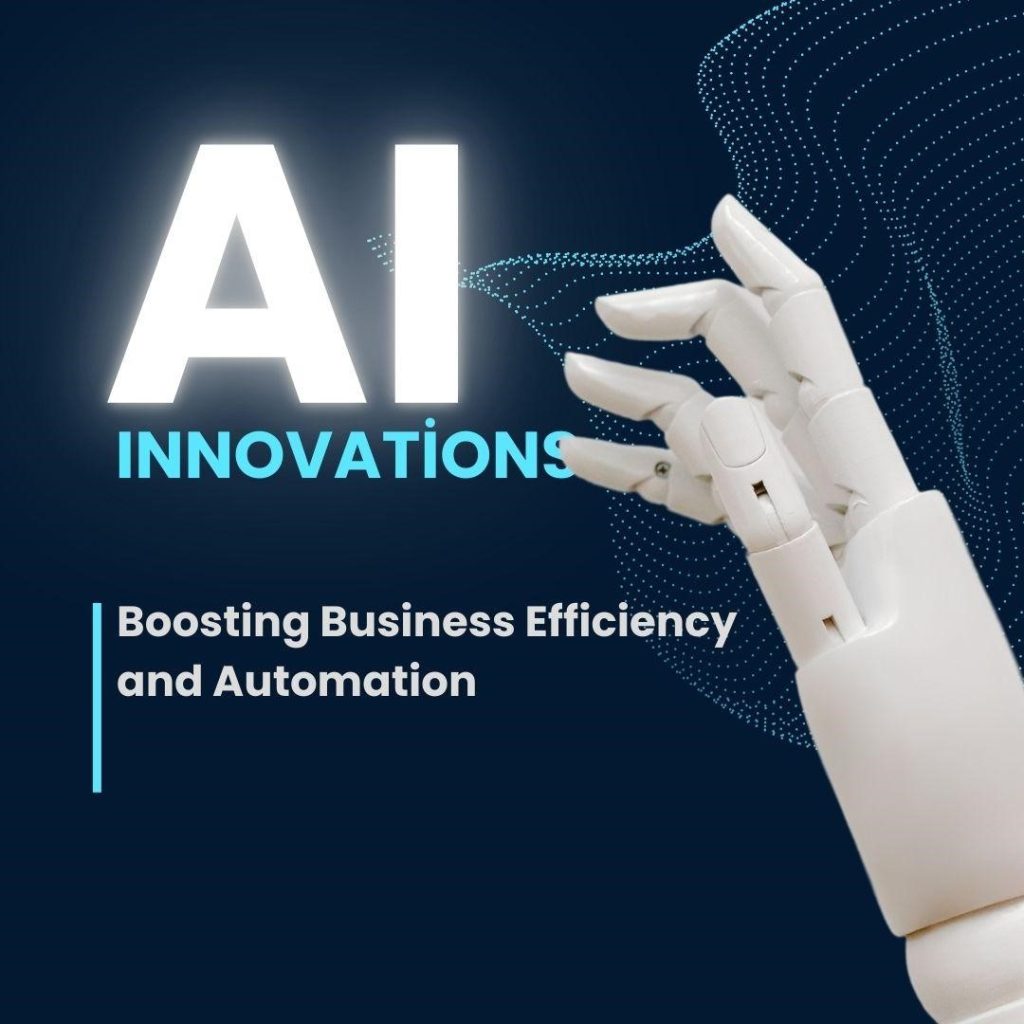Vineeta Dsouza, a researcher in AI, explores how artificial intelligence (AI) is revolutionizing business efficiency and automation across sectors. Her research delves into the technological advancements that have enabled AI’s rapid development, focusing on its transformative potential in optimizing operations and decision-making processes.
Revolutionizing Data Processing
The digital age has overwhelmed businesses with data, but AI, especially machine learning (ML) and deep learning, has transformed data processing through rapid, accurate analysis of large datasets. AI models like Large Language Models (LLMs) interpret unstructured data, such as customer feedback and social media, to provide actionable insights. These systems conduct sentiment analysis, generate reports, calculate metrics, and prepare presentations, reducing manual effort and improving decision-making. Ultimately, AI empowers businesses to adopt more data-driven strategies and enhance operational efficiency.
Simplifying Complex Processes
AI streamlines complex processes in data-intensive industries like healthcare, finance, and manufacturing by simplifying workflows, reducing errors, and boosting efficiency. In healthcare, AI improves patient care, diagnostic accuracy, and resource allocation, with studies showing diagnostic errors reduced by up to 85%. In manufacturing, AI enhances supply chain management by predicting maintenance needs, optimizing inventory, and improving production schedules. These AI-driven solutions reduce costs and significantly improve operational efficiency across various industries.
Automation: AI’s Driving Force
Automation is at the heart of AI’s transformative power. From customer service to financial operations, AI-driven automation solutions are reshaping the way businesses operate. By automating routine tasks, businesses can shift human resources toward more strategic and creative work.
The deployment of AI-based automation is typically done through A/B testing and other validation methods to ensure accuracy and precision. In industries like finance, AI is revolutionizing processes such as fraud detection, credit scoring, and investment management. Research suggests that AI-driven automation could reduce banking industry operating costs by 22% by 2030.
However, for AI automation to be effective, it requires continuous performance monitoring and refinement. By using feedback loops, AI systems can adjust and improve, ensuring that they remain efficient and accurate over time.
Continuous Improvement through Feedback Loops
AI’s ability to learn and adapt over time, driven by continuous feedback loops, is one of its strongest features. AI systems collect data, analyze it, and adjust algorithms to enhance accuracy and efficiency. In e-commerce, AI recommendation engines refine suggestions through user interactions, improving customer relationships and boosting sales. A study from MIT Sloan Management Review found that organizations with robust AI feedback mechanisms saw a 73% performance improvement, compared to 30% in those without such mechanisms, highlighting the power of iterative AI learning processes.
AI’s Hardware Revolution
Advancements in AI are driven by improvements in hardware, particularly Graphics Processing Units (GPUs) and specialized AI chips like Neural Processing Units (NPUs), which have significantly boosted computational power for complex AI models. The shift from CPUs to GPUs marked a turning point, enhancing parallel processing for neural networks. Looking ahead, technologies like neuromorphic and quantum computing promise to further revolutionize AI by reducing processing times and increasing model complexity, paving the way for even more sophisticated AI applications across industries.
The Benefits of AI-Driven Efficiency
Integrating AI into business processes brings significant benefits, including increased productivity, accuracy, scalability, and cost reduction. By automating repetitive tasks, employees can focus on higher-value activities like strategic planning. Studies show AI can boost labor productivity by up to 40% by enhancing human capabilities. In healthcare, AI’s superior data processing improves outcomes, such as outperforming radiologists in cancer detection, reducing false positives and negatives, and leading to life-saving advancements. These benefits span multiple industries, improving efficiency and outcomes.
AI’s scalability is another critical advantage. Businesses can handle increasing workloads without needing to proportionally increase their workforce. In industries like e-commerce, AI-powered chatbots and customer service tools enable companies to manage customer inquiries 24/7, offering personalized experiences at scale.
In conclusion, Vineeta Dsouza highlights the transformative role of AI in enhancing business efficiency and automation. Through innovations in data processing, process simplification, and automation, AI is driving operational improvements across industries. Continuous learning via feedback loops and advancements in hardware are key to AI’s growing capabilities. The benefits of AI integration, including scalability, cost reduction, and increased productivity, position it as a powerful tool for businesses seeking to optimize their operations and stay competitive in the evolving digital landscape.

